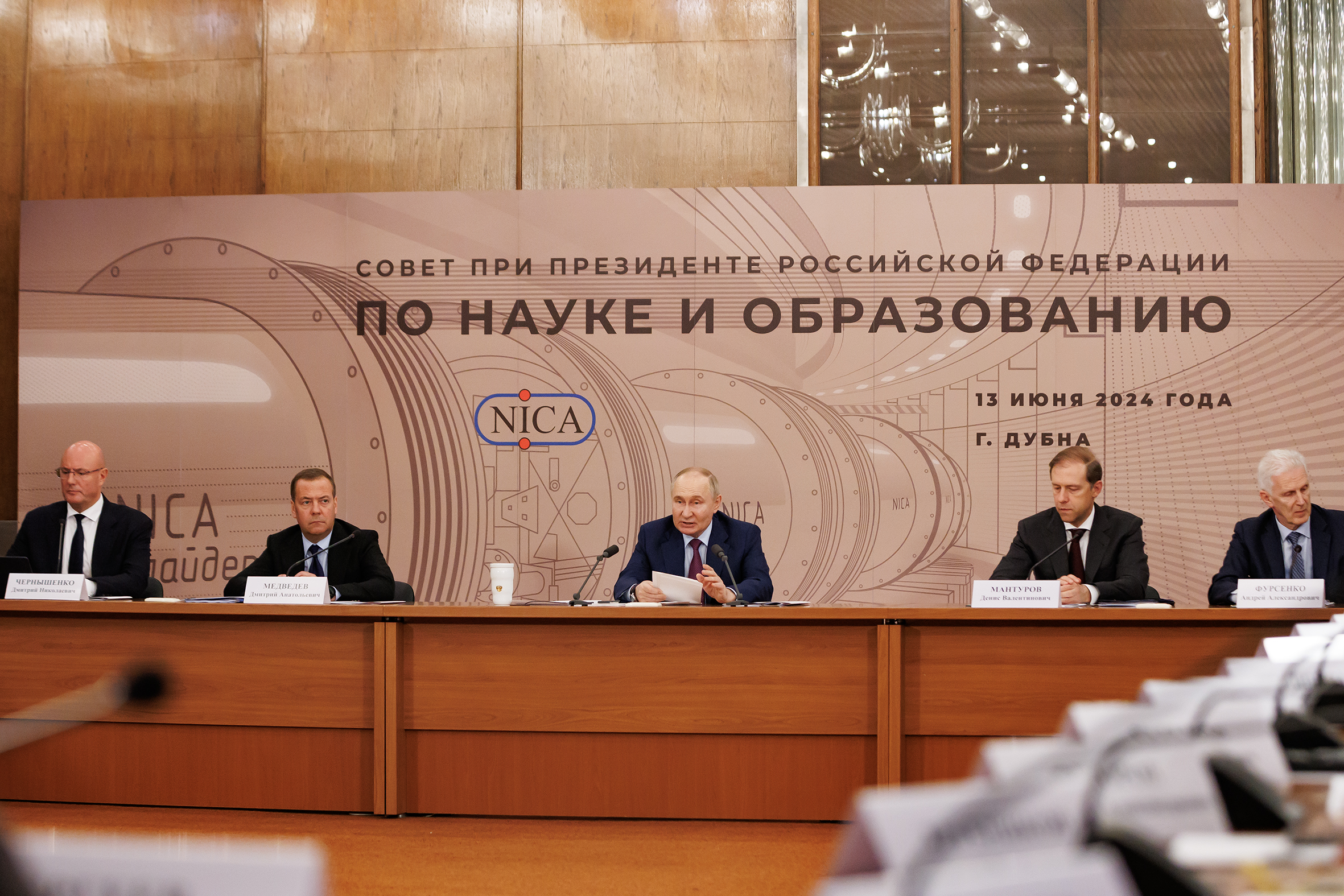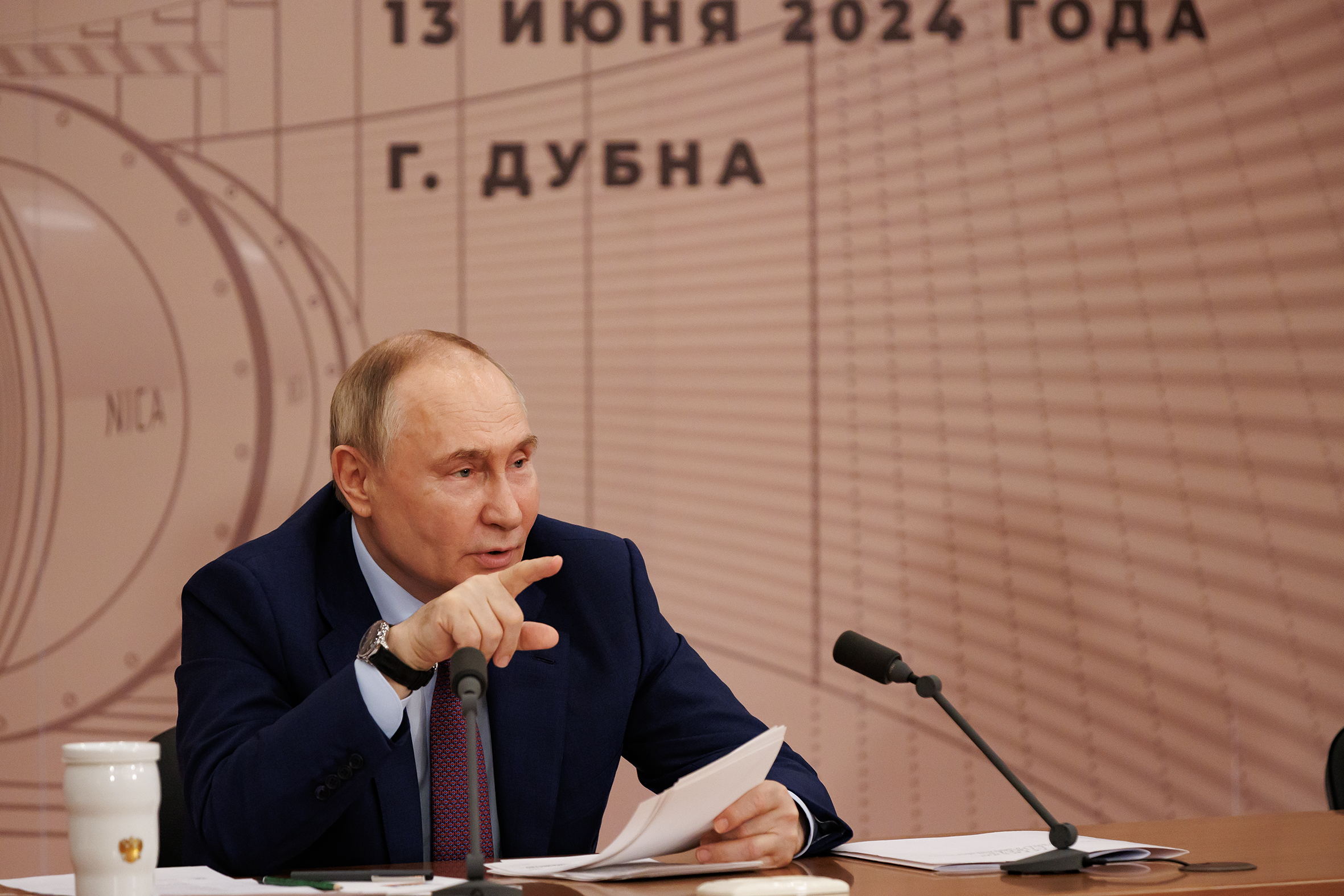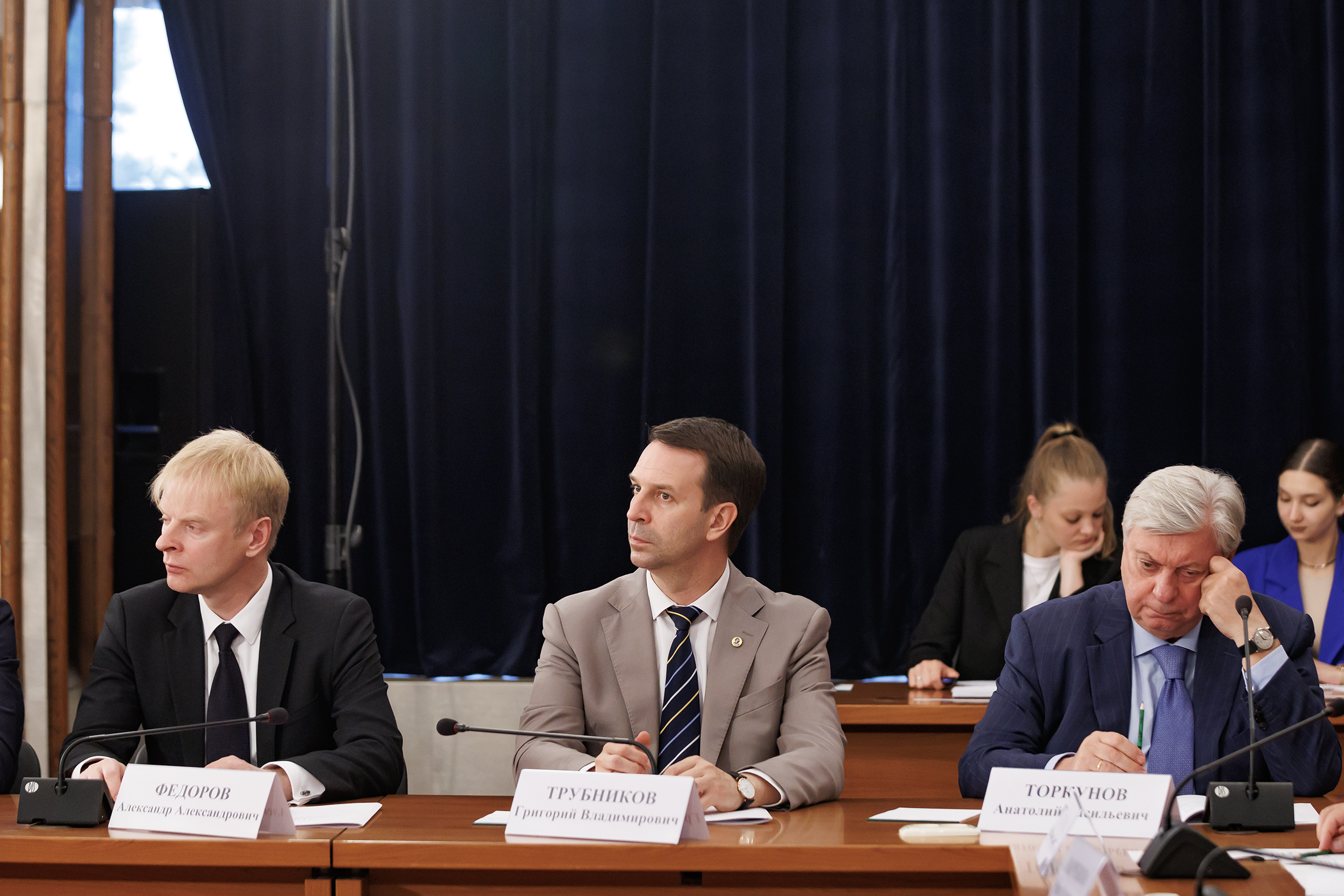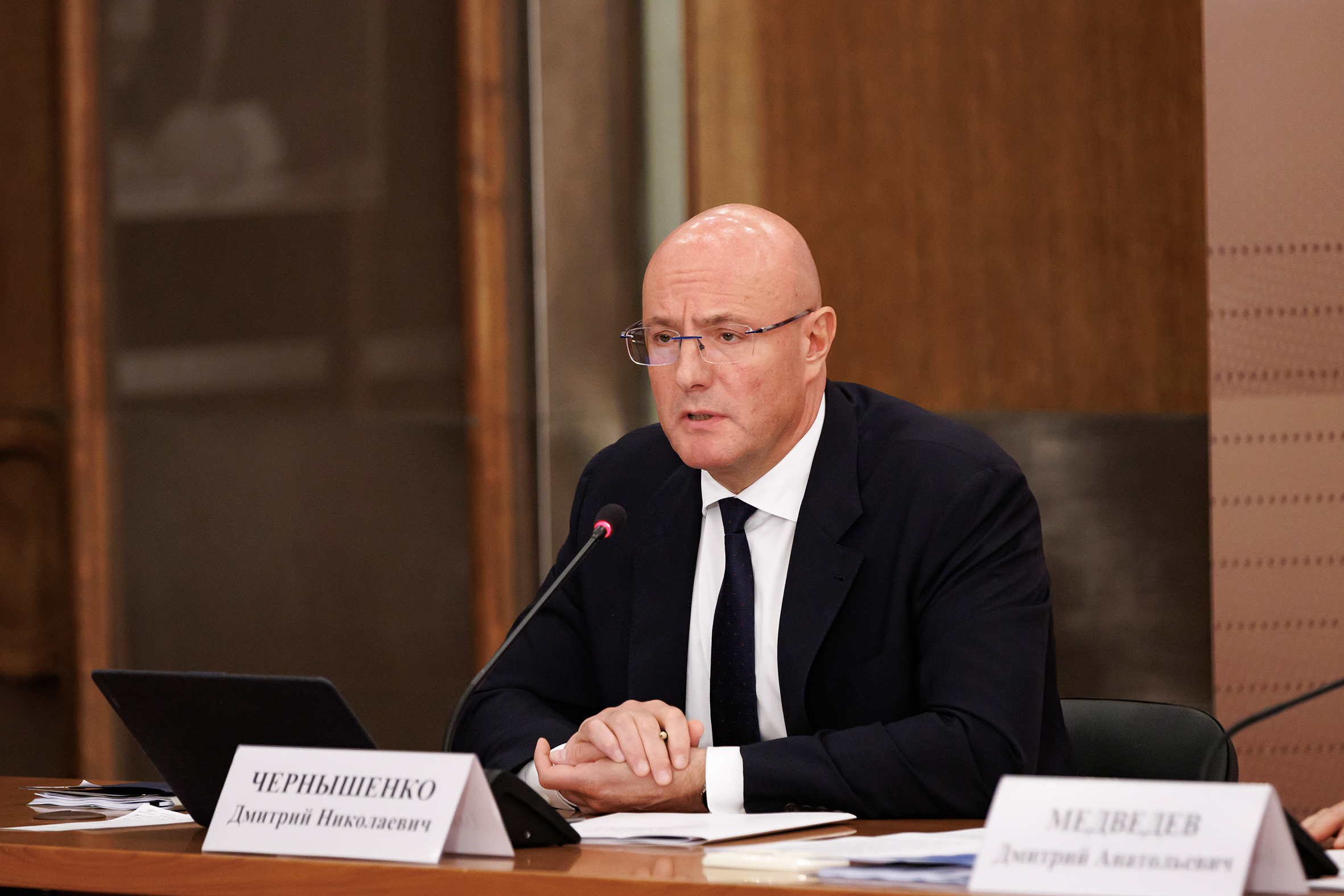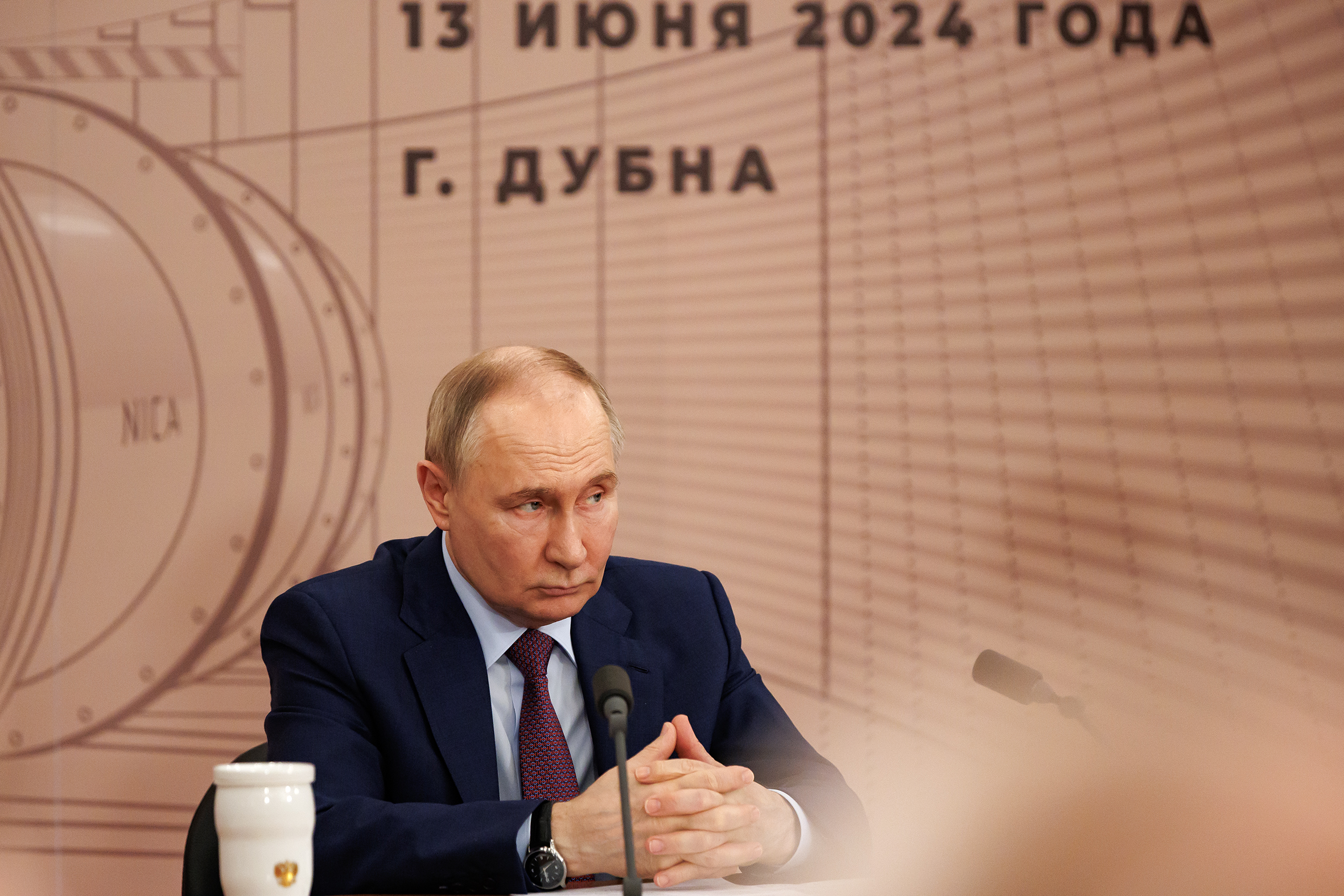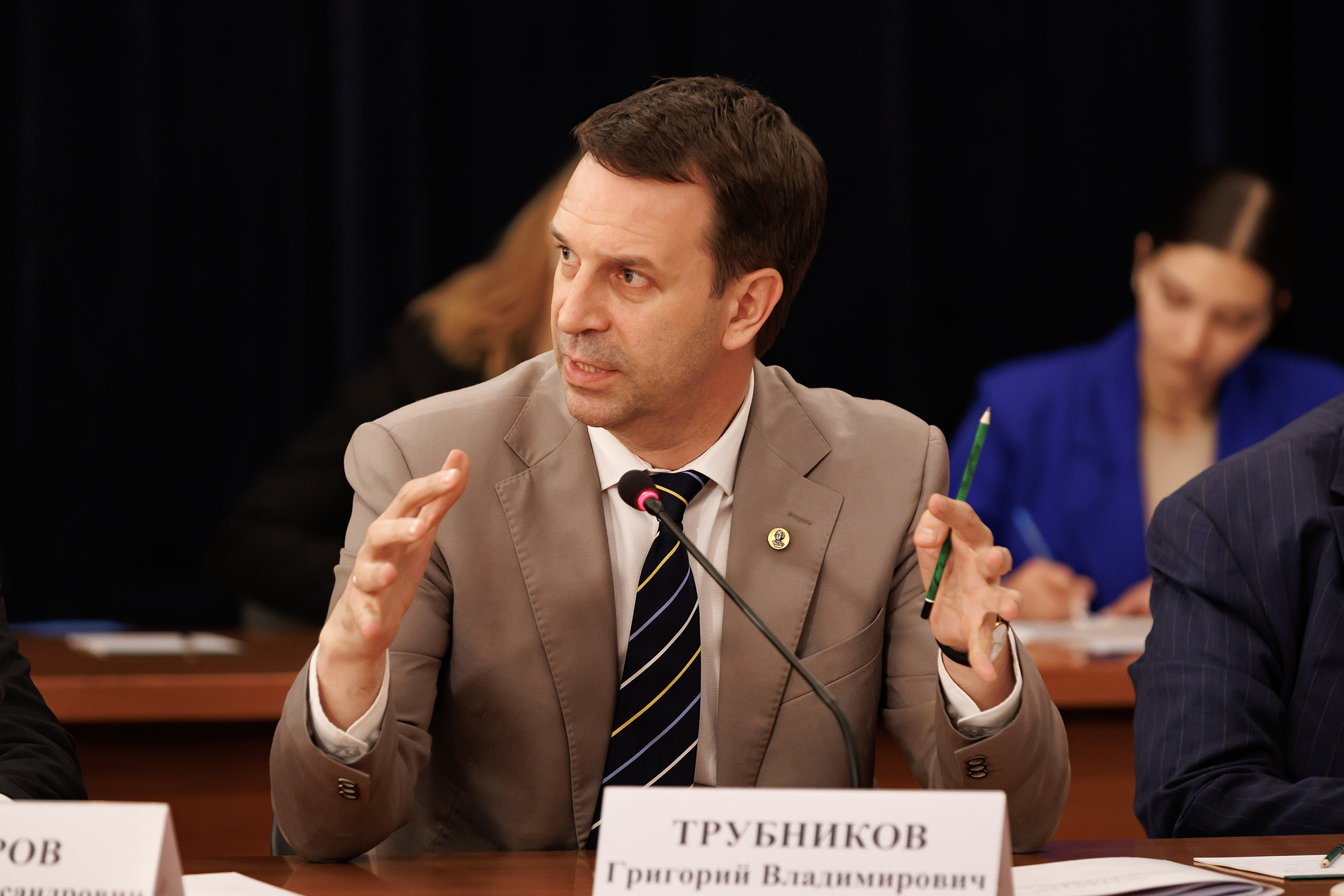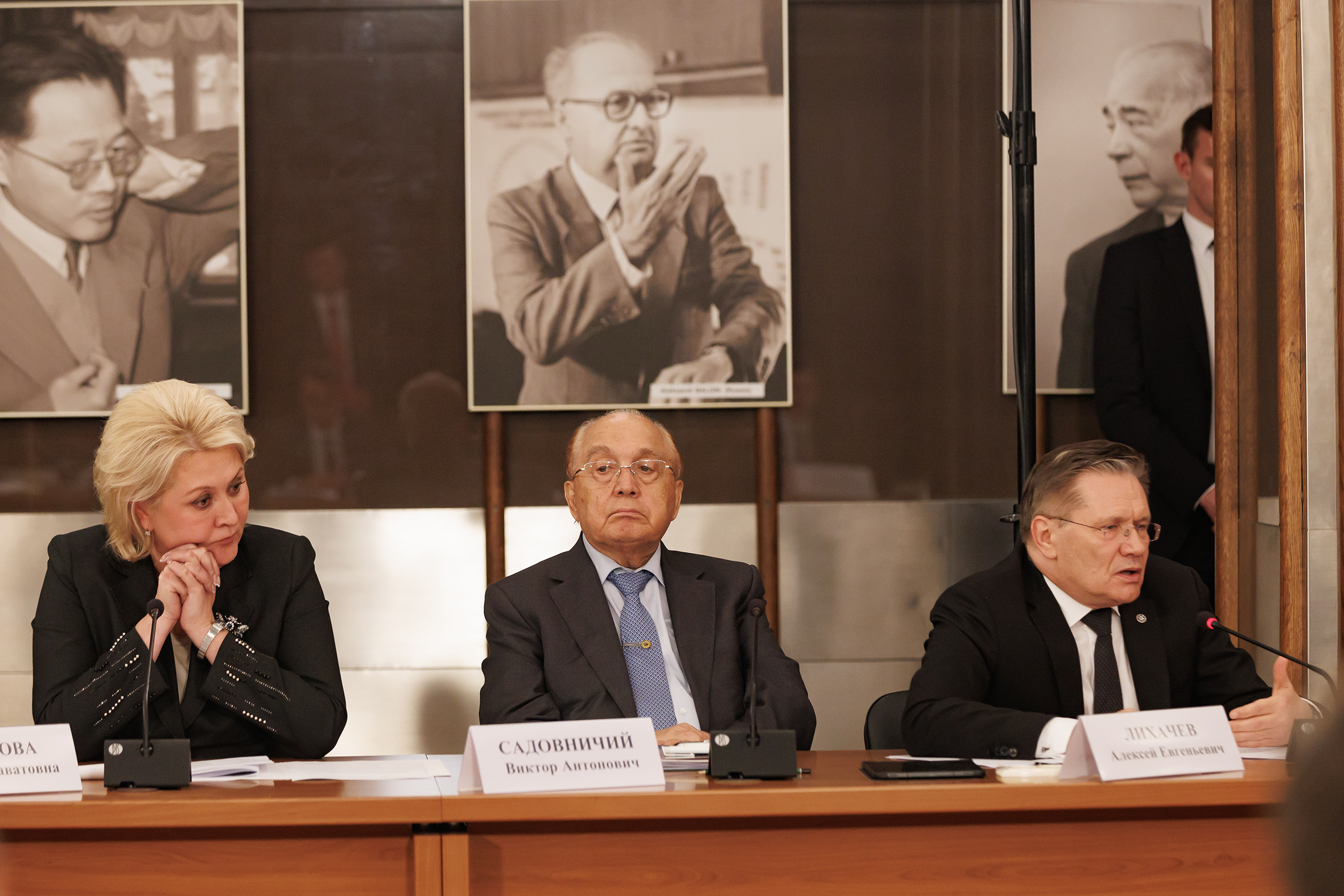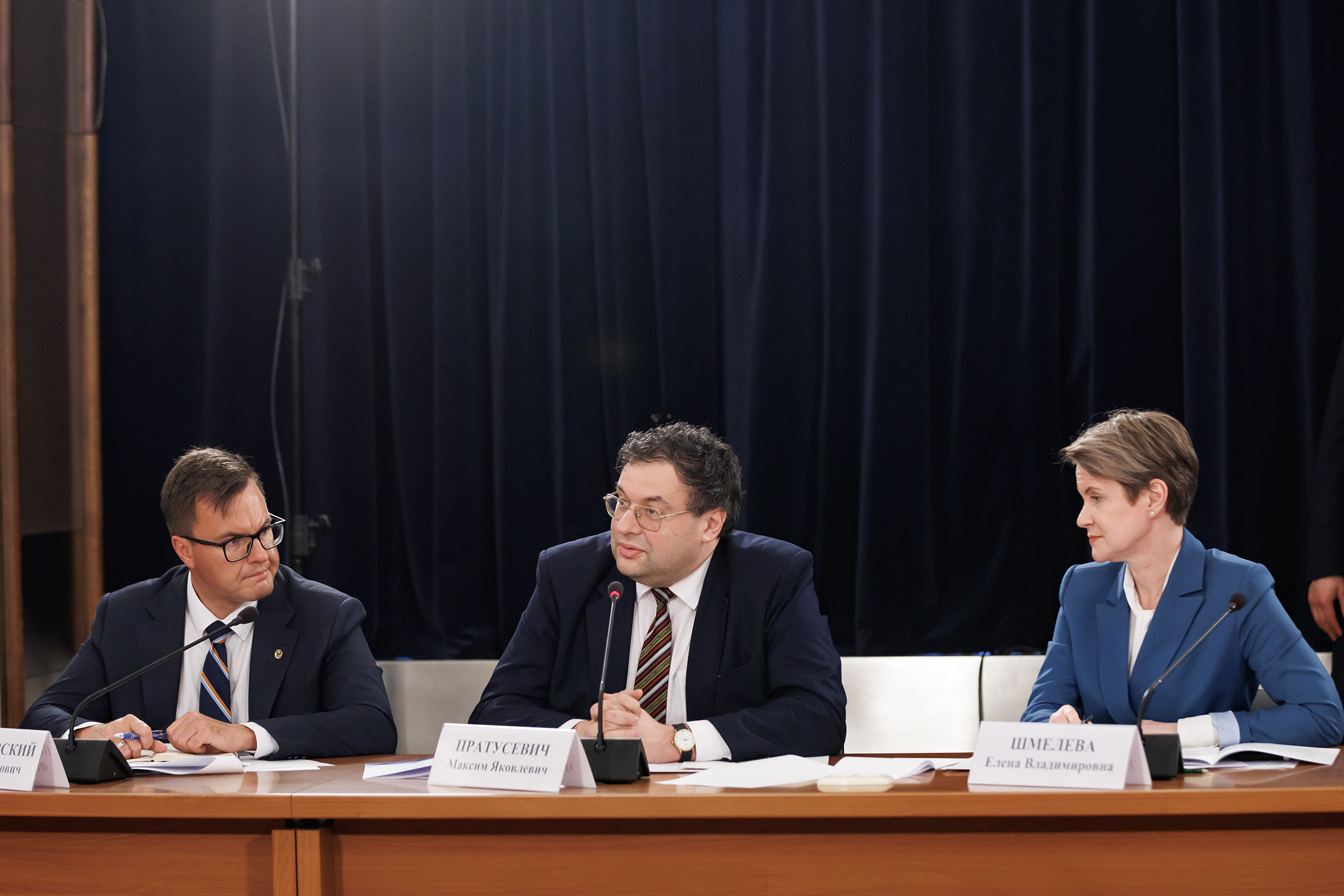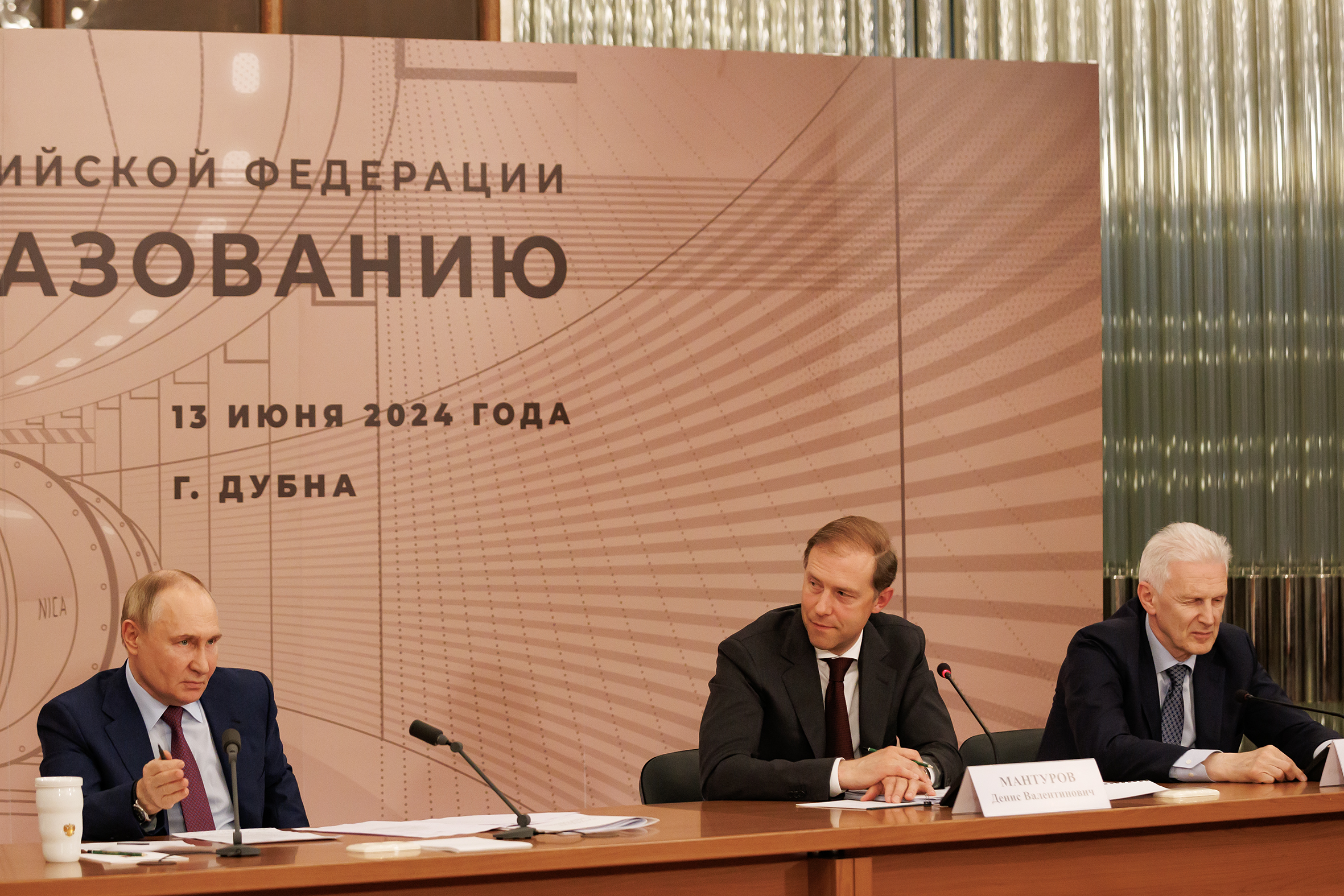Council for Science and Education chaired by President of Russia took place in Dubna
News, 15 June 2024
On 13 June, President of the Russian Federation Vladimir Putin held a meeting of the Council for Science and Education at the JINR International Conference Centre. The main item on the agenda was the formation and implementation of national projects supporting technological sovereignty. Following the meeting of the Council, a decree approving the priority directions for the scientific development of Russia will be signed.
Welcoming the event participants, Vladimir Putin noted that it was symbolic for Dubna to host the meeting of the Council discussing Russia’s scientific and technological priorities. “The entire history of Dubna as a science city is a good, vivid example of the state, scientists, engineering and educational institutions, economic sector representatives, and, without exaggeration, the entire society joining efforts to develop areas crucial for the country’s security and sovereignty,” the President of the Russian Federation stressed. He congratulated the members of the Council, the Russian and international scientific community, and all employees of the Joint Institute for Nuclear Research on the initiation of the technological launch of NICA, a landmark in the project’s history.
The President of Russia gave the floor to JINR Director, Academician of the Russian Academy of Sciences (RAS) Grigory Trubnikov to discuss the tools required to ensure Russia’s national technological leadership. “The presidential programme of the Russian Science Foundation, the laboratory’s megagrants, youth laboratories, research and education centres, and world-class research centres should focus on the priorities and technologies we are discussing today. It is also important that they are included in the new set of federal science and technology projects,” Grigory Trubnikov stressed.
The JINR Director expressed support for the list of top high-tech innovations. As he noted, the increasing interest in science and higher education among young people in Russia was primarily due to the Science and Universities national project. It has been successfully implemented for several years and will be completed in 2024. In addition, at the request of the Chairman of the Council, the JINR Director drew the Council’s attention to an ambitious project, the initiative of JINR and Dubna city’s key enterprises, supported by the Governor of the Moscow Region, to establish the International Science and Technology Park in Dubna. The project includes the construction of a new, modern university campus in the area. The initiative is also supported by several major partner holdings of JINR and Special Economic Zone (Dubna SEZ).
Deputy Prime Minister of Russia Dmitry Chernyshenko noted that the third stage of the project selection by the Russian Ministry of Science and Higher Education will commence in July-September 2024. The Dubna Science and Technology Park seems to be a serious rival among other applicants. It is expected that by 2036, 40 modern university campuses will be constructed in the country.
At the request of the President of Russia, the Government and the Russian Academy of Sciences compiled a list of the most significant high-tech solutions required for the country’s development. “In fact, these are specific, direct tasks for the Russian scientific community, the education system, and the technology business. Everything depends on how successfully these tasks will be solved: the implementation of our current plans, goals, ambitions, and, of course, the historic prospects of Russia,” Vladimir Putin emphasised. ”In the context of sanctions and increasing technological competition, the contribution of every scientific institute, research team, academician, professor, researcher, and graduate student promotes the common cause. It is important for us to work not only on what we want, what is profitable and prestigious, but also on what is essential for the well-being of our country,” the President said. According to Vladimir Putin, international scientific cooperation in Russia will continue. However, given the current restrictions, it is essential to focus on developing the country’s own scientific capabilities.
Deputy Prime Minister Dmitry Chernyshenko spoke about the priorities of the scientific and technological development of Russia. He discussed the upcoming programme devoted to the establishment of national technological sovereignty, which will feature federal projects related to science and technology. The Russian Academy of Sciences will play an essential role in the implementation of this programme, since it will carry out a detailed examination of all relevant projects.
Dmitry Chernyshenko underlined the need for the activities on staffing scientific support for the national projects to be organized systematically and linked to the corresponding indicators. “In order to ensure a systematic approach to this matter, I would like to propose the establishment of a separate or two independent federal projects in the structure of the national technological leadership initiatives. These projects would include both the training of specialists and the scientific components,” Dmitry Chernyshenko put forward a proposal.
President of the Russian Academy of Sciences Gennady Krasnikov presented to the Council members the priorities of scientific and technological development for the Russian Federation, which were formulated by the RAS in collaboration with a number of scientists and experts.
“Financial planning for budget expenditure on science must be carried out for a minimum of six years, or a longer period if necessary,” the President of the Russian Federation concluded. He noted that by 2030, it is planned to increase domestic investment in research and development to at least 2% of GDP, including through a doubling of investments in science and technology by private businesses.
Vladimir Putin closed the event by announcing that a decree will be signed in the near future to approve priority areas for the scientific development in Russia.
The meeting was attended by Deputy Chairman of the Security Council of Russia Dmitry Medvedev, First Deputy Chairman of the Government of Russia Denis Manturov, Assistant to the President of Russia Andrey Fursenko, Chairman of the Federation Council Committee on Science, Education, and Culture Lilia Gumerova, Minister of Science and Higher Education of Russia Valery Falkov, Rector of Moscow State University Victor Sadovnichy, Rosatom Director General Alexey Likhachev, Director General of the Russian Science Foundation Vladimir Bespalov, and other members of the Council.
